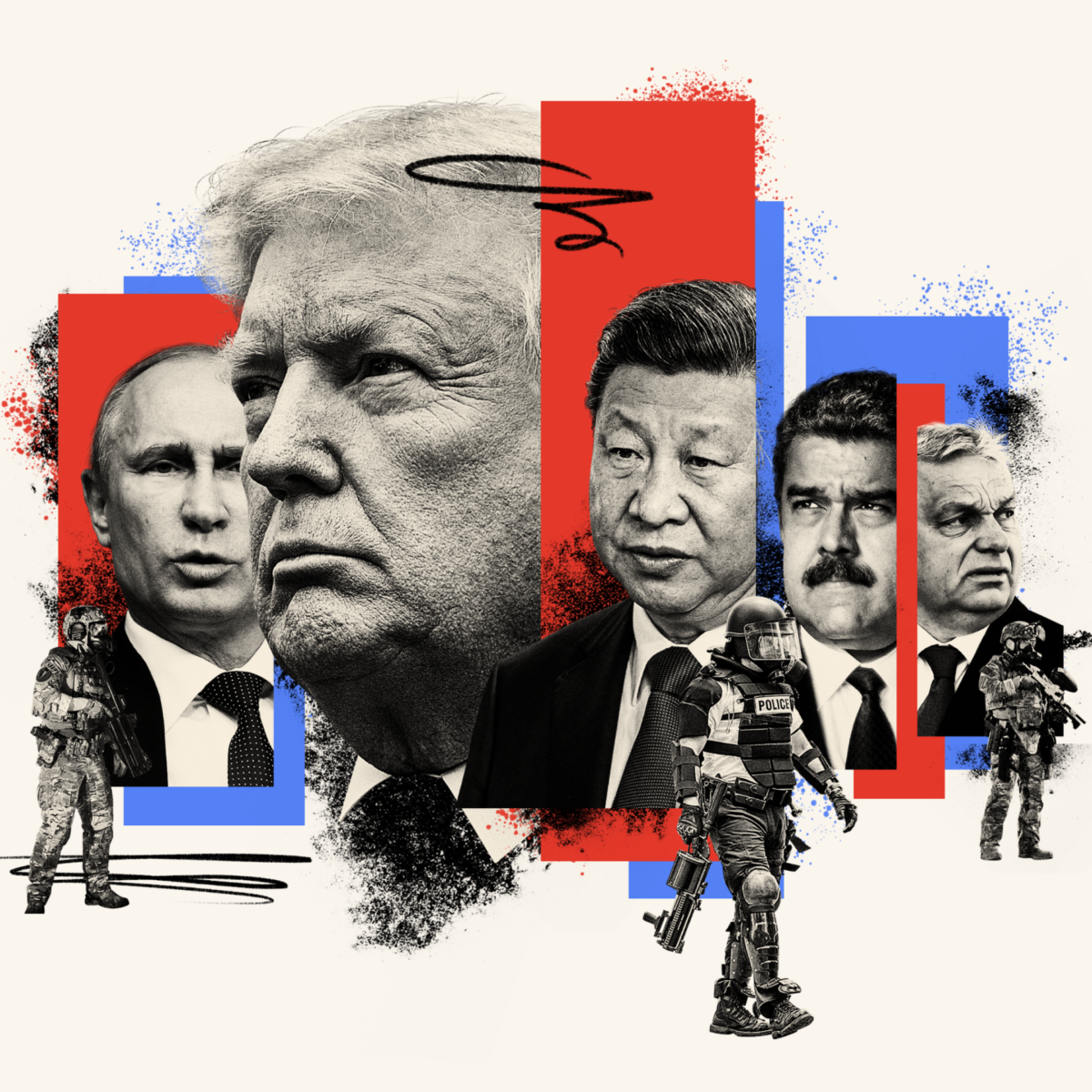As authoritarianism rises, world leaders face the test of defending democracy. Can resilience and reform save it, or is decline inevitable?

Democracy was once proclaimed destiny. After the Cold War, pundits declared the “end of history,” imagining liberal democracy as the final form of governance. Yet history has returned with vengeance. Across continents, authoritarianism surges. Leaders centralise power, manipulate media, erode institutions. Citizens weary of chaos trade freedom for stability.
World leaders convene in summits, issue declarations, pledge solidarity. Yet beneath rhetoric lies anxiety. Can democracy adapt to survive an authoritarian age? Or is its decline already underway?
The future of democracy depends not only on elections but on imagination—whether leaders can reinvent legitimacy before authoritarianism renders reinvention irrelevant.
Democracy’s foundation is trust—trust in institutions, in elections, in fellow citizens. That trust is crumbling. Misinformation corrodes confidence. Corruption scandals breed cynicism. Economic inequality deepens alienation.
World leaders know this. Their speeches are filled with promises to “restore trust.” Yet trust cannot be decreed. It must be earned through transparency, accountability, and justice. Without it, democracy becomes façade—ritual without legitimacy.
Authoritarianism thrives where trust collapses. Its promise of order appeals when democracy delivers only dysfunction.

Authoritarians succeed not only through repression but through strategy. Their playbook is clear:
1. Control the narrative – Capture media, flood disinformation, brand dissent as treason.
2. Erode institutions – Pack courts, politicise agencies, weaken legislatures.
3. Exploit divisions – Weaponise race, religion, class.
4. Promise stability – Present strongman rule as antidote to chaos.
World leaders confronting this playbook often respond reactively. Yet authoritarianism is proactive. It does not wait to be challenged—it sets the terms of contest.
Democracies falter not only because of external threats but internal complacency. Leaders treat democracy as self-sustaining. They assume elections suffice. They ignore structural flaws: gerrymandering, voter suppression, corporate influence.
These blind spots create fertile soil for authoritarianism. Citizens alienated by dysfunction become open to alternatives. Leaders who fail to address inequality and exclusion inadvertently prepare ground for demagogues.
The authoritarian age thrives on democracy’s negligence.
Technology was once hailed as democracy’s ally. Social media promised to empower voices. Blockchain promised transparency. Artificial intelligence promised efficiency.
Instead, technology has become double-edged. Authoritarians weaponise algorithms for surveillance and propaganda. Democracies struggle to regulate without stifling freedom. Citizens drown in disinformation.
World leaders must recognise technology as battlefield. To ignore it is to cede ground. To control it without accountability is to mimic authoritarianism. The challenge is balance—freedom with safeguards, innovation with integrity.
Inequality is democracy’s slow poison. When citizens believe the system benefits only elites, faith collapses. When wages stagnate while wealth soars, populists flourish.
Authoritarians exploit this disparity. They promise redistribution—often selectively, often corruptly—but convincingly enough to attract support.
World leaders cannot defend democracy without addressing inequality. Prosperity must be shared, not hoarded. Otherwise democracy becomes luxury for the few, not legitimacy for the many.

Democracy is not only leaders. It is citizens. Yet participation is waning. Voter turnout declines. Civic engagement weakens. Cynicism replaces commitment.
Authoritarianism thrives on apathy. Democracy requires vigilance. Citizens must demand reform, resist disinformation, and hold leaders accountable.
But leaders also bear responsibility. Citizens cannot defend democracy alone. They need institutions that reward participation, not frustrate it. They need education that equips them to navigate complexity.
Without citizens, democracy is hollow. Without leaders, it is vulnerable.
Democracy is not merely national. It is global. Authoritarianism spreads across borders—through alliances, disinformation networks, financial flows. Democracies must respond collectively.
Yet global cooperation is fractured. The United Nations is paralysed. NATO is strained. The European Union is divided. G7 communiqués ring hollow.
If democracy is to survive, leaders must build coalitions as resilient as authoritarian networks. Solidarity cannot be rhetorical. It must be structural, financial, technological.
The future of democracy hinges on reform. Leaders must confront systemic flaws: electoral manipulation, money in politics, judicial politicisation. They must restore integrity to institutions and fairness to economies.
Without reform, democracy declines into ritual. Authoritarianism fills the vacuum.
The choice is not abstract. It is urgent. Leaders who hesitate risk presiding over democracy’s funeral rather than its renewal.
World leaders and the future of democracy in an authoritarian age matter because survival of freedom itself is at stake. The tide of authoritarianism is rising. Trust is collapsing. Inequality festers. Technology destabilises.
This still matters because democracy cannot survive on nostalgia. It requires reinvention, courage, reform. Leaders must choose: defend legitimacy or surrender to spectacle, rebuild trust or preside over cynicism, confront authoritarianism or capitulate to its inevitability.
The question is not whether democracy will be challenged. The question is whether leaders—and citizens—will rise to defend it before the authoritarian tide becomes irreversible.
Anonymous is a private guest contributor of WTM MEDIA. Through Why These Matter, they examines the intersections of ethics, geo-politics, and government leadership—bringing clarity to issues that shape people, influence culture, and determine the future of global society.

At the intersection of brain chemistry and human longing, intimacy between men reveals a landscape of vulnerability, reward, and identity. This article delves into how neural circuits, hormonal dynamics, and psychological frameworks undergird male-male intimacy—why it matters, why it unsettles, and why it offers one of the deepest paths to self-knowledge and human connection. By combining neuroscience, endocrinology, and relational psychology, this piece argues that male intimacy is not a peripheral luxury but a core human imperative: a frontier where biology and spirit collide.

AI is reshaping medicine from diagnostic tool to empathic collaborator — a transformation that redefines care, ethics, and the essence of healing itself.

Across alliances, borders, and institutions, power is increasingly exercised without trust. This article examines how legitimacy—not military strength or economic size—has become the decisive variable in global stability, and why its erosion now threatens international order.